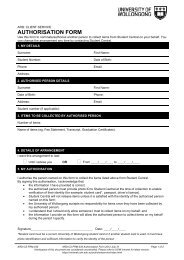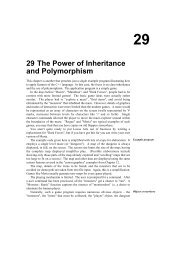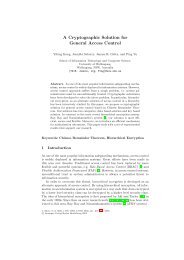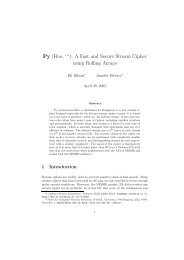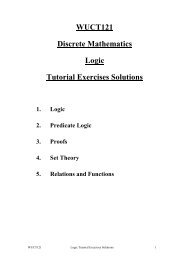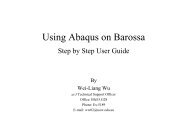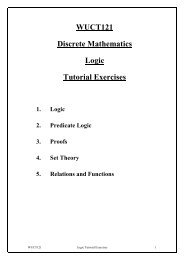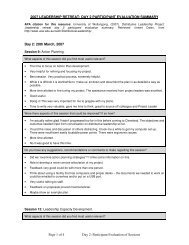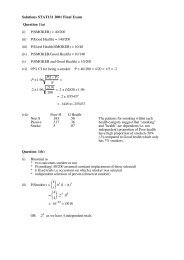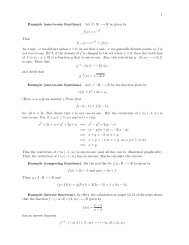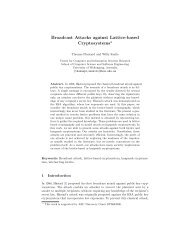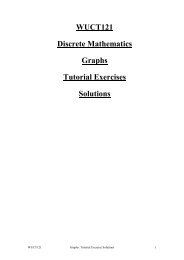Logic Strand Lecture 3
Logic Strand Lecture 3
Logic Strand Lecture 3
Create successful ePaper yourself
Turn your PDF publications into a flip-book with our unique Google optimized e-Paper software.
Rule of Substitution of Equivalence: If in a tautology we<br />
replace any part of a statement by a statement equivalent to<br />
that part, the result is still a tautology.<br />
Example:<br />
• Determine if P ⇒ (~ Q ∨ P)<br />
is a tautology.<br />
We know: P ⇒ ( Q ⇒ P)<br />
is a tautology and<br />
( P ⇒ Q)<br />
≡~<br />
P ∨ Q<br />
By the rule of substitution<br />
( Q ⇒ P)<br />
≡~<br />
Q ∨ P<br />
Thus, by the rule of substitution of equivalence,<br />
P ⇒ ( Q ⇒ P)<br />
≡ P ⇒ (~ Q ∨ P)<br />
, and hence<br />
P ⇒ (~ Q ∨ P) is also a tautology.<br />
Exercise:<br />
• ~ T ∨ (~ S ∨ T ) a tautology? Yes.<br />
We know ( P ⇒ Q)<br />
≡~<br />
P ∨ Q. So, ( S ⇒ T ) ≡~<br />
S ∨ T and<br />
T ⇒ (~ S ∨ T ) ≡~<br />
T ∨ (~ S ∨ T ) (by RoS).<br />
Hence, ~ T ∨ (~ S ∨ T ) ≡ T ⇒ ( S ⇒ T ) (by SoE).<br />
P ⇒ ( Q ⇒ P) is a known tautology, thus (by (SoE)<br />
T ⇒ ( S ⇒ T ) is a tautology, and since<br />
~ T ∨ (~ S ∨ T ) ≡ T ⇒ ( S ⇒ T ), ~ T ∨ (~ S ∨ T ) is a<br />
tautology.<br />
WUCT121 <strong>Logic</strong> 54



